Data Analysis- Dickinson College Class of 1862
A significant amount of data regarding the class of 1862 can be collected by using the 1905 Dickinson College alumni Directory. I started to organize the data by creating excel spreadsheets, which I have included photos of. I learned some important information about the class of 1862 by reading and analyzing the alumni record.
- There were 13 graduates in the class of 1962 compared to 44 non-graduates. That is a graduation rate of approximately 22.8%.
- Out of all 57 graduating and non-graduating members of the class of 1862:
- 6 were from Virginia
- 26 were from Pennsylvania
- 2 were from Kentucky
- 2 were from North Carolina
- 13 were from
Maryland
- 1 was from Washington, D.C.
- 1 was from New Jersey
- 1 was from Indiana
- 1 was from Mississippi
- 1 was from West Virginia
- 3 were from an unknown location
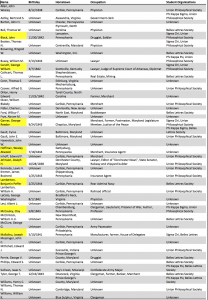
A breakdown of the non-graduating members of Dickinson College class of 1862. The highlighted names are people that I think will lead to interesting research. John J. Macartney, of Towsontown, MD and a member of B.L. Society, is absent from this list.
Nearly every member of the class of 1862 was a member of either the Union Philosophical Society or the Belles Lettres Literary society. A large number of students were also members of fraternities. Popular greek organizations include: Phi Kappa Sigma, Phi Kappa Psi, and Sigma Chi. Many students went on to fight in the Civil War. Other popular professions included law, medicine, and religion. Of the 13 graduating members of the class of 1862, 3 members became physicians, 4 members became lawyers, and 2 members became clergymen.
Reference Work
I started my work with reference sources by searching every graduating member of the class of 1862 using the American National Biography Online. Not a single graduating member brought up any results. I tried not to get discouraged so I turned to the Dickinson College Encyclopedia. I searched all of the graduating members of the class of 1862. This time I was able to find a search result for one member, Martin Christian Herman.
Martin Christian Herman
Martin Christian Herman was born on February 14th, 1841 in New Kingston, Pennsylvania. During his time at Dickinson College he was a member of Phi Kappa Psi fraternity and the Belles Lettres literary society. After graduating Dickinson College in 1862, Herman took up the practice of law and opened his own law practice in Carlisle. Herman was so successful in his law career that he became the president judge of the Ninth Judicial District of Pennsylvania. Martin Christian Herman was also a trustee of Dickinson College from 1877 to 1878.
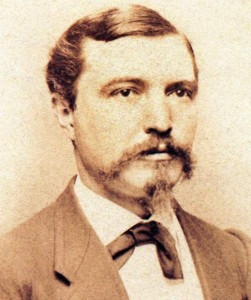
Photo of Martin Christian Herman, class of 1862, taken in 1870. Courtesy of the House Divided Project and Dickinson College Archives & Special Collections
I found this information from the Dickinson College Encyclopedia regarding Herman very interesting, but I wished to know more, especially about his term as a judge. However, my search to find more information on Martin Christian Herman was a frustrating one. I hit many dead ends and could not find any further information. Perhaps the most infuriating moment when researching Herman was when I found a promising bench guide for Cumberland County, only to find that the guide was not fully accessible on the internet.
I began to hit a wall with the other graduating members of the class of 1862. I decided to research some of the non-graduating members of the class that I thought had the potential to lead to something fruitful.
Benjamin Peffer Lamberton
Benjamin P. Lamberton was born on February 25th, 1844 in Cumberland County, Pennsylvania. He is a non-graduating member of Dickinson College class of 1862. During his time at Dickinson, Lamberton was a member of the Belles Lettres literary society.
Lamberton left Dickinson College and transferred to the Naval academy in order to pursue a career in the U.S. Navy. He graduated in 1864 and served on the U.S.S America during the Civil War. Lamberton’s naval career was extensive and he served aboard many ships. He rose through the ranks in the navy and held a variety of positions, including the inspector of the lighthouse board in South Carolina. Lamberton was appointed as Commodore Dewey’s chief of staff, leading Lamberton to serve on the U.S.S Olympia in the battle of Manila Bay during the Spanish American War.
According to the Encyclopedia of the Spanish-American and Philippine-American Wars, Lamberton left ship the day after the battle of Manila Bay and demanded the unconditional surrender of the Spanish. Lamberton’s demand was met and the Spanish surrendered. Lamberton’s naval career progressed all the way to him achieving the position of rear admiral. In Lamberton’s down time, he enjoyed duck hunting and fishing with President Grover Cleveland. Following Lamberton’s death in 1912, a destroyer was named in his honor.
My research with Benjamin Lamberton was definitely the easiest out of all of the members of the class of 1862. I was able to find an extensive Dickinson College Encyclopedia article about him. He was also the only member of the class of 1862 (to my knowledge) that has his own Wikipedia article. The most helpful reference source I used was the Encyclopedia of the Spanish- American Philippine American wars, which I found using google books.
Clay McCauley (MacCauley)
Clay McCauley was born on May 8th, 1843 in Chambersburg, Pennsylvania. McCauley was a non-graduating member of Dickinson College class of 1862. During his time at Dickinson College, he was a member of Phi Kappa Sigma and Union Philosophical Society.
McCauley left Dickinson College and became a second lieutenant in the Union Army. At the battle of Chancellorsville, McCauley was taken prisoner by the confederates and was held at Libby prison for a short period of time. After his release, McCauley finished his college education at Princeton University. McCauley then entered the MacCormick Theological Seminary. However, McCauley was not ordained as a Presbyterian pastor because he held controversial views on the atonement. McCauley then turned to Unitarianism, serving as a minister at various Unitarian churches across the country.
McCauley was a highly educated man. He continued to pursue his intellectual curiosities by studying philosophy and theology in Germany. McCauley was also a man of many talents and tried his hand at anthropological research, newspaper editing, and traveling. McCauley went on a mission to Japan in 1886 with the American Unitarian Association in order to do educational work and promote progressive religions like Unitarianism. McCauley was a prolific author who wrote books on Japan, religion, Germany, and Native Americans. McCauley was well known and respected in Japan. He was awarded the Order of the Rising Sun and the Order of the Sacred Treasure by the Japanese emperor.
The first source regarding Clay McCauley that I found was the civil war research engine at Dickinson College, House Divided. The entry on McCauley was a brief but helpful overview on his life. It also included many useful images of McCauley.
After this, I tried to search McCauley on American National Biography Online but I had no luck. I thought that I would be unable to find more information on McCauley until I stumbled upon a finding aid created by the Online Archive of California. The finding aid had brief facts and descriptions on McCauley. The most important thing that I learned was that in some sources, Clay McCauley is referred to as Clay MacCauley. This little spelling change proved to make a big difference. I then searched Clay MacCauley instead of Clay McCauley on google. A lot of sources I would not have been able to find came up. The most useful reference I found was an entry on Clay MacCauley in the American National Biography Online, a database I had previously searched and found nothing in. I also found a lot of non-reference sources about MacCauley (or McCauley) that I hope to use in later stages of this project.
I also found an interesting wordpress webpage regarding McCauley. I did not use any of the information from this page in this journal, because it is not a reference source and I am not entirely sure that it is a reliable source. However, It included a research paper about Clay McCauley from a student named Dianna Coscette from a previous historical methodologies class. Her paper included a bibliography, which is what I took interest in. I think this will prove helpful in further research.
The most important thing I learned in regard to research from Clay McCauley is that a name is not always reliable. Sometimes names are spelt wrong or changed, which can make research difficult. It is important to realize that there might be vital information regarding the person you are researching under a different name. Always be on the lookout for potential misspellings and pseudonyms because it could make or break your research.
Ancestry.com Assignment
For the Ancestry.com portion of this assignment, I decided to focus on Clay McCauley because he was the member of the class of 1862 that I found to be the most compelling.
The first bit of information I found regarding Clay McCauley was the 1860 United States Federal Census. According to the census record, 17 year old Clay McCauley was living in Chambersburg, Pennsylvania with his father, Isaac H. McCauley. I believe that Ancestry.com transcribed his name incorrectly, making it J.H. McCauley instead of I.H. McCauley. The older woman in the household confuses me. I figured it would be Clay McCauley’s mother, but it looks like her name is listed as Mary McCauley instead of Elizabeth Maxwell. According to ancestry, McCauley does have a sister named Margaretta but she would not be 42 in 1860. The age of 42 lines up with the age of Elizabeth Maxwell, so I wonder if there was a mistake made by the census taker. There is also a 21 year old “domestic” named Anna Yost living in the McCauley household at this time.
The next document I looked at on ancestry was the 1870 census. According to this census, Clay McCauley was living in Waltham, Massachusetts with the Blood family. I know at this time he was serving at a parish in Waltham. This census record contains what I believe to be a mistake. It lists a “Hannah McCauley” but I believe that is meant to be Clay McCauley’s wife, Annie.
The next and final census record that I looked at was the census of 1880. Clay McCauley was living in Washington D.C. with his wife, who is again referred to by a wrong name. This time they listed her as Anna instead of Annie. The McCauley family seem to be lodging in a house owned by someone named Sarah B. Berry. Berry’s occupation is listed as “keeping house”. I gather this to mean that Berry rented out parts of her house to lodgers like McCauley and his wife. I know from my previous research on McCauley that in 1880 he was working at the financially troubled First Unitarian Church.

Screenshot of the 1880 census. Clay McCauley is highlighted in orange. The yellow highlight is a mistake made by Ancestry.com.
Perhaps these financial problems is why McCauley lived in a shared house.
Since I experienced issues with the spelling of McCauley’s name, I decided to search the alternate spelling “MacCauley” on the Ancestry.com database. I found a good amount of information, but not as much as I found under the spelling “McCauley”. This makes a convincing argument that McCauley is the correct spelling. However, ancestry.com provided some evidence for MacCauley. On ancestry.com, I found a picture of Clay McCauley’s (or MacCauley) grave. On his tombstone, his name is spelt like MacCauley. I will always remember to search both McCauley and MacCauley when doing my research, or else I will miss out on some important information.
Overall, I had a positive experience using ancestry.com. I would encourage others to use it in their research but it is important to realize that there can be mistakes in census taking and the spelling of ones names.
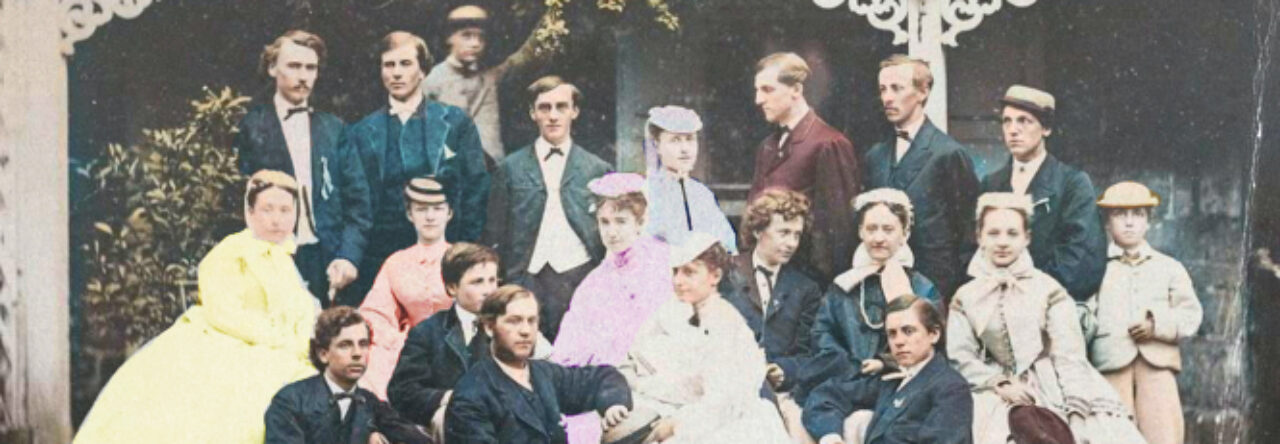
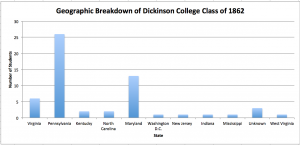
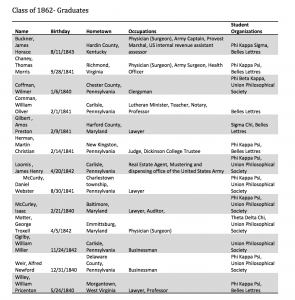
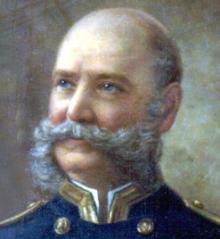
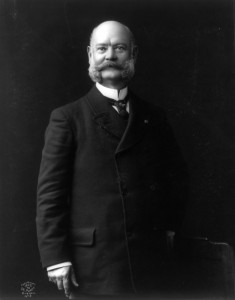

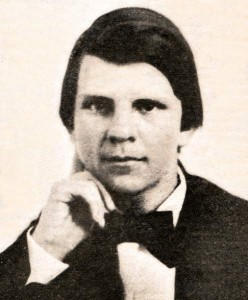
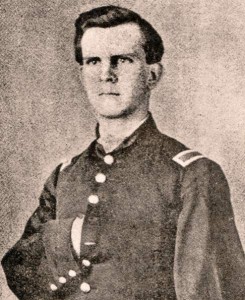
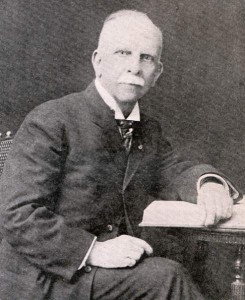

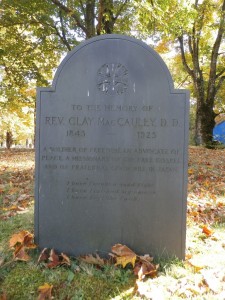
Leave a Reply